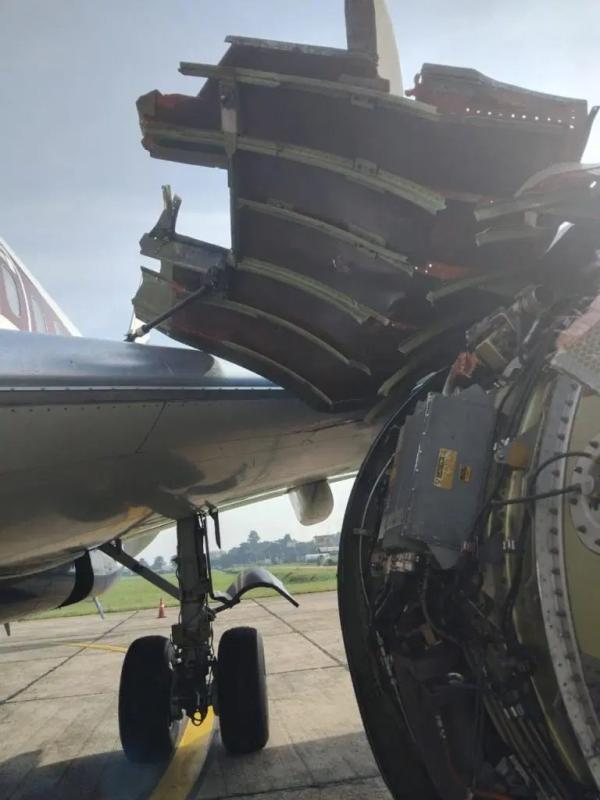
North East Children
As residents in communities near Baga flee daily to Maiduguri, Bornu State capital, reports said that children from this part of the country have continued to live in fear; hence many don’t go to school anymore.
Hauwa, 16, is from Maiduguri, the capital of Borno State in North-eastern Nigeria, a region blighted by years of Boko Haram insurgency. She said fear is with her daily, dictating how she lives.
"I'm scared of walking along roads on my own because I don't want to be raped for the second time," she told The Hill, a United States (US) online publication after meeting with the families affected by the Boko Haram insurgency in Maiduguri.
Borno State as a whole has borne the brunt of the violence that has lasted for more than five years in North-eastern Nigeria.
During four days in late October, The Hill was on a mission to encourage reluctant parents in Maiduguri to send their daughters to safe schools working through traditional leaders, youth leaders and the local media as facilitators.
In those four days, “we met girls, who told me they were scared of returning to school because they fear they could be attacked by anyone, including their male teachers. Because of their ordeal in the hands of militants, some of whom they identified as neighbours, they are unwilling to trust anyone.
“I don’t know where my next attacker could come from,” a young girl said. “I just don’t trust anyone, not even my teachers.”
Since the ongoing crisis, life has never been the same for kids living in the region, as every facet of their lives has been affected by the insurgency.
Children no longer feel safe even in their homes. They also fear going to public places like markets, streams, farms and social gatherings for fear of being attacked or forcibly conscripted by Boko Haram.
As many public schools in the North-eastern Nigeria are now closed, many students now hawk wares on the streets, and some have turned to criminal activities. The situation in the few still-open private schools is no better, as most parents are scared of sending their children there.
The insurgency itself has set back education in an area that is grossly underdeveloped and with a high rate of illiteracy. Since 2012, Boko Haram has burned more than 300 schools in the north and deprived more than 10,000 children of education.
In a particularly gory attack in July, suspected armed Islamists killed 42 pupils and teachers and burned down a government-owned boarding school in Mamudo village, Yobe State.
Figures released by Human Rights Watch indicate that more than 5,000 people; mostly adults have been killed since the insurgency began in 2009. As parents are lost in fighting, more and more children are without families and homes.
Living with fear of being killed, and without anyone to turn to for protection and assistance, many orphans have joined the recruitment of armed conflict. The militia life has become more attractive to the children, who see a possible future of survival with their fellow soldiers.
In most cases, these young soldiers from ages 12 to 16 come from communities where there are no schools to attend and no jobs to engage them and destitute families. Every year, the number of child soldiers grows as more children are recruited into active combat.
Moreover, the continuous influx of IDPs into major towns in the region have increased the number of beggars on the streets, a situation that forced some of them–especially girls–into prostitution to make ends meet.
Millions of dollars, thousands of people's efforts, and several months have all been spent trying to secure a lasting peace in North-eastern Nigeria. But these efforts have not gone far enough. A lack of coordination, corruption in some quarters, and insufficient access to those most in need all make achieving well-being by children difficult, but not impossible.
For many children in these communities, education remains their surest way out of poverty and destitution. "I want to enjoy the life I had before the insurgency," said Umar, 16. "I want to be able to go to school without the threats of insurgent attacks."
Unfortunately, the fear of Boko Haram has forced many parents to withdraw their children from schools, and this can only add to an already explosive mix of the large pool of uneducated and unemployed youth and debilitating poverty.
Just four days spent in the heart of Boko Haram insurgency made one realise that protecting schools alone, even with the best trained military personnel wouldn’t be enough to encourage every child to return to the classroom. They need a different form of home education that will help them cripple fear and rebuild their trust in the society.
Meanwhile, the humanitarian crisis facing Maiduguri may be further compounded as residents of the towns near the captured Baga have started trooping into the town.
Speaking to journalists yesterday, the spokesman of the National Emergency Management Agency (NEMA) in the North-east, Mallam AbdulKadir Ibrahim, said the agency had registered people that fled from Monguno, Doron-Baga and other communities close to Baga, which was infiltrated by the Boko Haram insurgents over the weekend.
He revealed that from the record gathered at the camp of the internally displaced persons (IDPs) in Maiduguri, the new additions were mainly from Monguno, Doron-Baga and other communities near Baga.
He said this was indicative of the fact that these people might have fled their homes due to the fear of being attacked by the rampaging insurgents, while confirming that the agency had registered 1,636 people fleeing from Baga and environs to Maiduguri.
According to him, the breakdown of the figure showed that 1,172 were males and 464 were females. A further breakdown showed that 779 were adult males and 393 were male children with 216 adult females and 248 female children.
Ibrahim said: NEMA in conjunction with State Emergency Management Agency (SEMA) and other stakeholders haD provided the IDPs with beddings and other items.
“Those that were sick have been given medical attention, while all hands are on the deck as all the stakeholders in emergency management are doing what they can to attend to the needs of the people,” the NEMA information officer stressed.
He also disclosed that majority of the people that fled the Baga attack migrated into Chad, adding that the agency was currently planning strategies to evacuate them back to the country.
Ibrahim revealed that: “Recently, NEMA team was dispatched to Chad, Cameroun and Niger to ascertain the number of Nigerians displaced in these countries. Those who are willing to come back will be evacuated back to Nigeria with the assistance of the host countries."
Also, indication to the extent of casualties was gathered in Maiduguri yesterday as some fleeing residents, who spoke on condition of anonymity said the insurgents killed many soldiers in the capture of Baga.
In the BBC Hausa Service news monitored in Maiduguri, a soldier who spoke anonymously said the troops were caught unawares and without enough ammunition. He revealed that not less than 200 soldiers were killed at the base of the Multinational Joint Task Force (MNJTF) in the town, noting that this was apart from civilians slaughtered by the terrorists.
Another person that spoke on BBC lamented that 80 fleeing residents drown in an overloaded boat taking Nigerians into Chad, which capsized on the Lake Chad.
Meanwhile, some fleeing residents of Monguno told THISDAY that they decided to flee the area to Maiduguri because they were no longer safe.
Bukar Kolo, one of the fleeing residents said: “Almost all the towns in northern part of Borno State have been sacked by the Boko Haram so the information we got from people that escaped from Baga is that they are going to come for us.”
Another resident, Ibrahim Yunus, said he decided to flee with his family because the insurgents might soon come for them as the capacity of the military to protect them has been depleted with the capture of Baga.
“It is sad that government cannot protect us from these rampaging insurgents, who take delight in taking innocent lives,” he added.
THISDAY saw many of the fleeing residents arriving Baga Motor Park in rickety vehicles with their belongings and domestic animals.






















